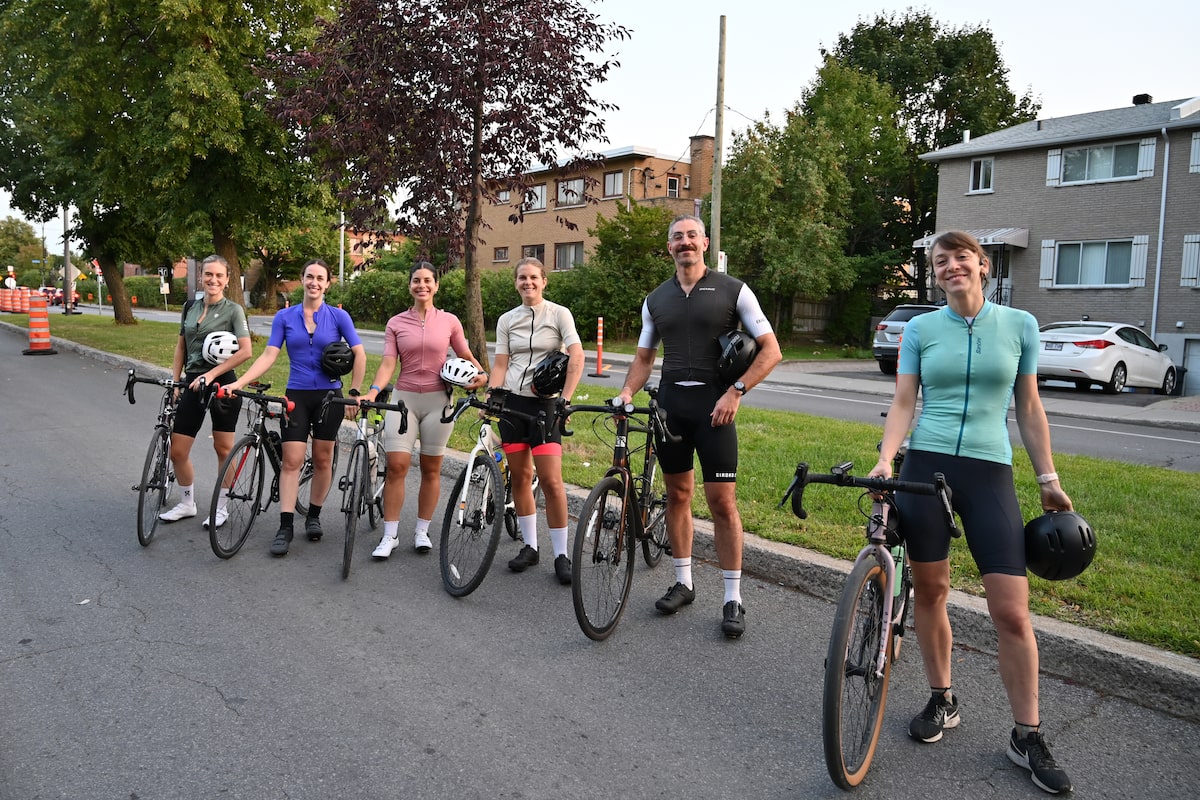Left to right, Jasmin Route cycling challenge participants Josephine Proulx-Beaubien, Marie-Eve Gibeault, Safa Hammoud, Beatrice St-Cyr-Leroux, Joey Hanna and Fannie Fortier-Tougas, ahead of a training ride in Montreal on Sept. 9.Supplied
The organizer: Safa Hammoud
The pitch: Raising $100,000
The cause: UNHCR the UN Refugee Agency
Ever since Syria’s revolution began in 2011, Montreal lawyer Safa Hammoud has experienced survivor’s guilt and a compulsion to help those in need.
Ms. Hammoud, 31, left Syria with her family in 2000 and arrived in Montreal on Christmas Eve. Her parents “had a choice but it was a difficult choice to make; to leave their country, to leave their families behind, to give a better future for their children,” Ms. Hammoud recalled. “I am very grateful for the decision they took.”
The outbreak of civil war and the subsequent refugee crisis left her feeling bereft. “The survival guilt was getting to me and I needed to do something about it. I needed to take action,” she said. “I needed to do what I can, as a privileged person living in Montreal, having enough to eat, having a place to live every day.”
Ms. Hammoud and her parents, who fled Syria 25 years ago. She’s organizing a cycling event whose distance mirrors that between Damascus and Palmyra.Supplied
She’s been involved with several UNHCR programs for Syrians in Montreal since 2016, but last spring she decided to do something more. She’d participated in a cycling event in Toronto that raised money for cancer research and wanted to organize a similar event in Quebec.
Together with Joey Hanna, who heads UNHCR’s Montreal office and is also of Syrian origin, Ms. Hammoud organized the Jasmine Route: a two-day ride from Montreal to Quebec City that takes place Oct. 11 and 12. A total of 50 cyclists will make the 270-kilometre journey, and they hope to raise $100,000 for UNHCR projects in Syria that help people rebuild their lives.
Ms. Hammoud said the name – Jasmine Route – refers to the jasmine flower, a symbol of hope and resilience in many Middle Eastern cultures.
She’s planning to make the ride an annual event, and she’s grateful for the support the event has received. “I think people do have empathy, and they realize the privilege that we have in Quebec and elsewhere,” she said. “So I think it’s important to keep learning about what’s happening around the world, and to keep this empathy alive and to act on it.”

